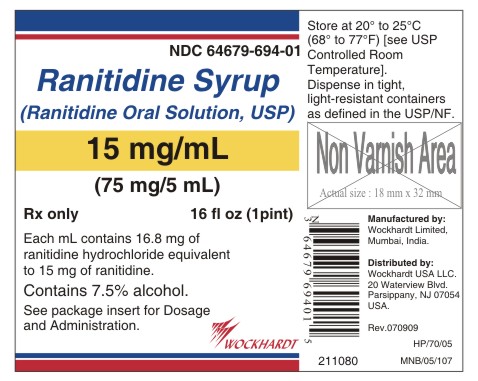Ranitidine Hydrochloride Syrup while Breastfeeding

What is Ranitidine Hydrochloride Syrup used for?
I am breastfeeding mother and I am using Ranitidine Hydrochloride Syrup. Can it have any bad effect on my kid? Shall I search for better alternative?

Ranitidine Hydrochloride Syrup Breastfeeding Analsys
Ranitidine while Breastfeeding
SafeCAS Number: 66357-35-5
Drug which is commonly used in pediatric therapy even for newborn treatment. Excreted in high amount into breast milk although infant intake is reportedly lower than usual therapeutic dose. No side effects on breastfed babies have been reported. Increase of Prolactin levels has been shown, yet it does not induce galactorrhea.
Ranitidine Hydrochloride Syrup Breastfeeding Analsys - 2
Ranitidine while Breastfeeding
CAS Number: 66357-35-5
Although interpatient variability exists, the dose of ranitidine in breastmilk is less than the dose used in newborn infants. Maternal ranitidine would not be expected to cause any adverse effects in breastfed infants. No special precautions are required.
I am nursing mother and I have already used Ranitidine Hydrochloride Syrup, what should I do?
It is always a good idea to keep your healthcare provider or doctor informed about your drug usage during pregnancy and breastfeeding but if you have not informed your doctor about Ranitidine Hydrochloride Syrup and have used it then do not panic as Ranitidine Hydrochloride Syrup is mostly safe in breastfeeding and should not cause any harm to your baby.
I am nursing mother and my doctor has suggested me to use Ranitidine Hydrochloride Syrup, is it safe?
Definitely, Ranitidine Hydrochloride Syrup is safe in lactation for baby. No wonder your doctor has recommended it.
If I am using Ranitidine Hydrochloride Syrup, will my baby need extra monitoring?
No extra baby monitoring required while mother is using Ranitidine Hydrochloride Syrup
Who can I talk to if I have questions about usage of Ranitidine Hydrochloride Syrup in breastfeeding?
US
National Womens Health and Breastfeeding Helpline: 800-994-9662 (TDD 888-220-5446) 9 a.m. and 6 p.m. ET, Monday through Friday
UK
National Breastfeeding Helpline: 0300-100-0212 9.30am to 9.30pm, daily
Association of Breastfeeding Mothers: 0300-330-5453
La Leche League: 0345-120-2918
The Breastfeeding Network supporter line in Bengali and Sylheti: 0300-456-2421
National Childbirth Trust (NCT): 0300-330-0700
Australia
National Breastfeeding Helpline: 1800-686-268 24 hours a day, 7 days a week
Canada
Telehealth Ontario for breastfeeding: 1-866-797-0000 24 hours a day, 7 days a week
